It made no sense. I asked him what was really going on, and what was wrong with Mother? He whispered, “That’s not your mother. It won’t let me leave. It’s doing something to me at night. You have to get me out of here.
All of this sounded crazy to Annika, and to find time to think she “told them I had to go for a walk.” She made her way down to the empty main street, where “The paint on the houses was chipped and fading, the stairs rotting; everything was falling apart.” Soon, she noticed something odd.
I peeked into the grocery store and saw someone standing behind the counter, and a customer on the other side. Just what you might expect. But the customer would put some groceries on the counter, and after the cashier rang them up, the customer put the wares back on the shelves again! Then they started all over again. I looked while they did it four times. They were still doing it when I left.
As she went further down the street, she happened upon a man chopping wood outside his house. Something wasn’t quite right here either:
I realized he wasn’t really chopping anything. He was just moving his axe up and down, like a robot. I went closer, because his clothes looked strange – like he was wearing a cat suit painted like regular clothes. Then he looked up at me. His eyes were ink, just dots of ink.
I ran back to my parents’ home, and Father was standing next to my car with a little satchel over his shoulder. He looked like a terrified schoolboy. I was going to say something to him, but then Mother came out onto the porch. It was still light out – I could see her face. It wasn’t Mother. And then she opened her mouth. I can’t describe the sound she made.
Annika got her father into the car and drove all the way back to Umeå without stopping. “We never came back to Lillbo. We never told anyone, because who would have believed us? Me and my father were the last, the last people to leave Lillbo.”
Final Conclusions
As you might expect, Annika M’s story prompted me to travel to Lillbo. Decades had passed since the events she described, but I still hoped to find clues, if not a live specimen. I also needed to see the site for myself. An inexperienced and frightened observer, Annika M had provided an account that was vague and skewed toward the monstrous. I, on the other hand, had studied Pyret for a very long time. I had nothing to fear from a creature I knew to be, in essence, benign.
I arrived at the village late in the afternoon. As it was October, I was treated to a spectacular turning of leaves. Annika had described the village as “falling apart” on her visit decades ago; now, the houses were practically rotting shells. I looked into windows and doorways where I could, but found nothing interesting… until I tried the door to the grocery store. It was half-stuck, but unlocked, and I managed to get it open.
Everyday objects filled the shelves on the walls: alarm clocks, stationery, china, clothes, silverware, paintings, lamps, scales, Bakelite telephones, canned goods, stuffed toys, sewing machines, picture frames. A powdery smell in the air made me think of plastic gone brittle in the sun. In the middle of the floor, its back to the counter, sat a molding velvet couch facing an old TV set. A little table to one side held a teapot, four cups, and a sheaf of paper. The couch was covered in a layer of something like hardened gelatin. That powdery smell became stronger as I drew closer, a taste of something like talcum settling on the tongue.
The paper on the table was inscribed with curlicued rows that resembled writing, but on closer inspection turned out to be just long loops of ink. A signature-like swirl sat in the bottom right corner. It looked very much like a childish imitation of a letter.
As I wandered along the carefully stacked shelves, the ordered clutter left behind, I found myself doubting the premise of my own research—and this elicited a strangely powerful reaction. I think it was due in part to the fact that I have studied Pyret for so long, and was suddenly closer than I had ever been to finding tangible proof of its existence. But this proof, these leavings, was far beyond what I had expected to find.
I have in this essay offered the possibility of Pyret’s sentience, but so far my research points to it really being a non-sentient animal; talented, yes, but an animal nonetheless. This room, which more than anything resembled a shrine to humanity, raised a new question—one that might not be answered until Pyret’s next appearance.
When a creature chooses to die surrounded by keepsakes from a species to which it doesn’t belong, leaving an imitation of language behind—has it acted out of instinct or intelligence?
Augusta stood in the middle of the lawn with the croquet club in a two-handed grasp. She had been offered the honor of opening the game. Mnemosyne’s prized croquet balls were carved from bone, with inlaid enamel and gold. The ball at Augusta’s feet stared up at her with eyes of bright blue porcelain. An invitation to a croquet game in Mnemosyne’s court was a wonderful thing. It was something to brag about. Those who went to Mnemosyne’s games saw and were seen by the right people. Of course, they also risked utter humiliation and ridicule.
Augusta was sweating profusely. It trickled down between her breasts, eventually forming damp spots on the front of her shirt. She could feel a similar dampness spreading in the seat of her too-tight kneepants. More moisture ran down her temples, making tracks in the thick layers of powder. Her artful corkscrew curls were already wilting.
The other guests spread out across the lawn, waiting for her move. Everyone who meant something was here. Our Lady Mnemosyne sat under a lace umbrella on her usual podium. Her chamberlain Walpurgis lounged in the grass in his white surtout, watching Augusta with heavy-lidded eyes. At his side, the twin lovers Vergilia and Hermine shared a divan, embracing as usual. Today one of them was dressed in a crinoline adorned with leaves; the other wore a dress made of gray feathers. Their page, a changeling boy in garish makeup, stood behind them holding a tray of drinks.
Further away, Augusta’s sister Azalea had grown tired of waiting. She had stripped naked next to a shrubbery, methodically plucking leaves off its branches. Everyone except Azalea was watching Augusta. The only sound was that of tearing leaves.
Augusta took a deep breath, raised her club and swung it with a grunt. The ball flew in a high arc, landing with a crunch in the face of the twins’ page, who dropped his tray and doubled over. The garden burst into cheers and applause. Mnemosyne smiled and nodded from her podium. Augusta had passed the test.
The game thus opened, the other guests threw themselves into play. In a series of magnificent hits, Walpurgis knocked out two pages who were carried off with crushed eyebrows, broken teeth, and bleeding noses. The twins were in unusually bad shape, mostly hitting balls instead of pages. Augusta played very carefully, focusing on not getting hit. There were a few breaks for cake, games and flogging a servant. Finally Hermine and Vergilia, one hand each on the club, hit Augusta’s ball and it rolled well into the woods beyond the gardens. The hit was considered so stylish that Augusta was sent out of the game. She wandered in among the trees to find her ball.
Under one of the dog-rose bushes lay a human corpse: a man in a grey woolen suit. They sometimes wandered into the woods by mistake. This one had come unusually far. It was difficult to tell what had killed him. He had begun to putrefy; the swollen belly had burst his waistcoat open. A gold chain trailed from one of the pockets. Augusta bent forward, gingerly grasped the chain, and pulled it. A shiny locket emerged on the end of the chain, engraved with flowers. Augusta swung the locket up in the air and let it land in her palm. The touch sent a little chill along her arm, and for a moment she felt faint. She wrapped the locket in a handkerchief, put it in a pocket, and returned to the croquet green to announce that there was a new and interesting corpse.
Читать дальше
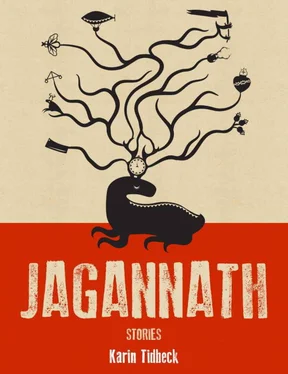
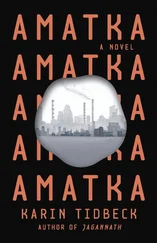
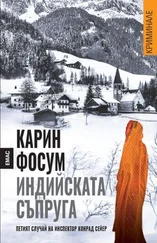
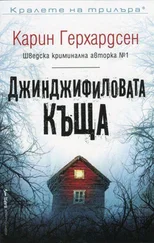
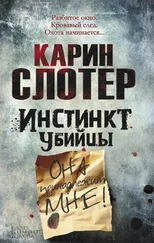
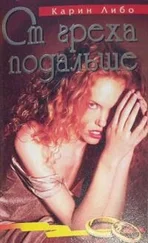
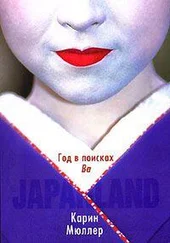
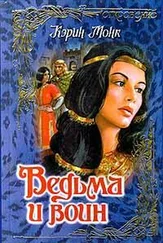


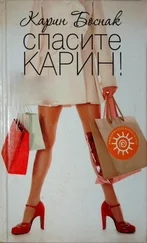

![Карин Тидбек - Аматка [ЛП]](/books/438406/karin-tidbek-amatka-lp-thumb.webp)